Pinched Nerve On The Finger
A pinched nerve in the finger occurs when excessive pressure or compression disrupts the normal functioning of a nerve. This compression can lead to pain, numbness, tingling, or weakness in the affected finger.
Your finger may experience pain, tingling, or weakness due to a pinched nerve. A pinched nerve indicates that one of your nerves is strained, bruised, or otherwise damaged.
Excessive pressure from surrounding bones, cartilage, muscles, or tendons can result in a pinched nerve. There are multiple nerves in your finger that could be in pain.
Introduction
Various parts of the body can experience a pinched nerve. Carpal tunnel syndrome, which is caused by a pinched nerve in the wrist, can cause discomfort and numbness in the hand and fingers. A hand nerve impingement can cause tingling, discomfort, and numbness. A pinched nerve can be caused by many things, such as an injury or arthritis, but carpal tunnel syndrome is most frequently linked to it.
A pinched nerve may seem very dangerous, and it can get worse, but most individuals recover in a few days or weeks if the nerve is compressed very briefly before pressure is released through rest or medical intervention.
The majority of people recover from a pinched nerve in a few days or weeks with rest and other conservative therapy. In certain cases, surgery is required to treat pinched nerve discomfort.
Causes
Direct or indirect injury to the radial nerve, ulnar nerve, median nerve, or branchial plexus nerve root can cause nerve discomfort in the hands and fingers. When you hear the word “pinched nerve,” you might immediately think of your neck or back, however, your fingers can also be impacted by pinched nerves in your neck, wrist, arm, and shoulder.
This condition arises from pressure, constriction, or stretching of a nerve. A pinched nerve can result from an injury, from other illnesses like arthritis, or from doing repetitive tasks. Various kinds of nerve injuries could give rise to painful feelings in your fingertips.
- When pressure is applied to the nerve passing through your carpal tunnel, you can develop this kind of pinched nerve.
- A disorder known as carpal tunnel syndrome occurs when the median nerve at the wrist experiences excessive pressure. Some fingertip muscles can move and feel thanks to this nerve.
- Carpal tunnel syndrome can cause pain, tingling, numbness, weakness, or damage to the muscles in the hand or fingers.
- Carpal tunnel syndrome symptoms can appear in your middle finger, ring finger, pointer finger, and thumb.
- The majority of patients with this kind of pinched nerve syndrome are hands-on workers, whether they are performing carpentry, playing an instrument, or using a computer.
- This happens when pressure or stretching is applied to your ulnar nerve.
- Your pinkie and ring fingers are affected. Compression of the ulnar nerve near the elbow causes cubital tunnel syndrome, which causes tingling, numbness, and pain in the forearm and fingers as well as impairs hand-gripping abilities.
- Its underlying causes include arthritis, bone spurs, and previous fractures, and it is often misdiagnosed as something different.
- The ulnar nerve, which travels from your shoulder to your hand, maybe directly compressed or kept bent for an extended time, such as while you sleep, to cause this problem.
Radial tunnel syndrome:
- Radial tunnel nerve syndrome can cause pain when your fingers are straightened.
- Particularly on the back of your thumb and index finger, this could happen.
- There is a chance that your radial nerve will be compressed close to the elbow, resulting in finger problems.
- Cervical radiculopathy, or pinched nerve in the neck, can cause pain in the fingers.
- This ailment could be brought on by an injury, aging, or arthritis.
Other nerve conditions:
Additional conditions that put pressure on your nerves could be the source of your finger pain, such as:
- Arthritis
- Degenerating discs in your spine
- Infections
- Tumors
- Changes to your spinal cord
Symptoms:
A pinched nerve in the finger can result in several symptoms, some of which are as follows:
- Sensation of numb
- A burning sensation
- The feel of pins and needles
- Sensation of tingling
- Weakening in the impacted muscle group.
- A sharp, hurting discomfort that could spread externally.
- Having trouble holding with your hands and fingers
- In certain cases, if your body maintains a particular position while you sleep for an extended time, you may awaken with more symptoms.
The way to Perform a Damage Test:
You may identify a finger nerve injury at home using several different techniques.
Signs of trauma or injury should be your first priority. With hectic lives, it is possible to sustain an injury without realizing it. For example, in your haste to go to work, you may have smacked your hand on the car door and failed to notice the slight pain. But a seemingly insignificant injury could soon worsen and cause nerve damage.
Therefore, it’s critical that you thoroughly inspect your fingertips for wounds, burns, and bruises. Next, you need to look for sensations. Inspect for any similar sensations, such as tingling, numbness, discomfort, or swelling. Check to see whether your fingers are sagging slightly or not opening all the way. As soon as there is any deformity or discoloration, you should see a doctor.
Finally, you can test whether you have damage to the nerves in your finger by doing certain movements. Put a pencil in each finger and squeeze it to see how strong your fingers are. Any finger that is not strong enough to hold can get hurt.
Diagnosis
It will be necessary to carefully examine your symptoms in order to determine the source, as there are numerous nerve diseases that can produce symptoms in your finger.
Some conditions only affect certain fingers. For instance, carpel tunnel syndrome may be more likely to be the cause of thumb pain. The cubital tunnel syndrome may be the source of your pinkie finger pain. Your finger, wrist, elbow, and shoulder pain could be the result of cervical radiculopathy or radial tunnel syndrome.
Visiting your physician could aid in the diagnosis of your finger’s pain. Before ordering additional tests, your doctor will perform a physical examination and talk about your symptoms and family history. In order to determine the reason behind your symptoms, your doctor might ask you to perform specific motions or tasks.
If you have carpal tunnel syndrome, your doctor may tell you to bend your wrist for a short while. Your doctor may advise you to move your fingers when employing resistance. Your ability to complete these tasks and your description of your sensations during them may help with the diagnosis. The doctor could also perform tests to find out what is causing the symptoms. These could consist of:
- X-ray
- MRI
- EMG
Treatments
There are many different ways to treat a pinched nerve that is causing pain in your finger. Your doctor can recommend a few cautious initial techniques to relieve the pinched nerve. The specific conditions and underlying disease determine the course of treatment for hand neuropathy.
When it comes to managing pain, home remedies are frequently a good place to start. However, additional therapies, medications, or even surgery may be needed to address the problem. If your symptoms don’t go better, you might want to think about receiving more advanced care, such as surgery or specific drugs.
Early treatment of the pinched nerve is crucial to prevent the symptoms from getting worse over time. A combination of strategies may be used in the condition’s management, depending on the particulars of the case.
You can attempt a variety of methods at home to treat nerve pain.
- Splinting: In certain situations, using a customized splint on your thumb or afflicted finger may be helpful. To check if symptoms improve, your doctor can suggest wearing one for a few weeks.
- Resting: A lot of nerve pain disorders go away on their own. It can be beneficial to give the afflicted area some time to rest.
- Heat and cold: Changing the temperature and applying ice to the afflicted area helps increase blood flow, which in turn helps reduce inflammation and other symptoms. When it comes to hand stiffness issues, heat usually works well, but cooling helps with discomfort brought on by movements.
- Apply gentle pressure with the fingers of your other hand on the place that hurts.
- If you are lying down with a pillow, keep your arm and fingers raised slightly.
- Avoid doing finger exercises that need to be done repeatedly without a break.
- Teach the hand that is hurting to perform chores that you would typically do with the other hand.
- Establish that the hand-held equipment you use fits your body properly and that your workplace enables you to perform tasks with your fingers, hands, and wrists in a natural and comfortable position.
Medications:
- Nonsteroidal anti-inflammatory medicines (NSAIDs) including aspirin, ibuprofen, and naproxen can help relieve pain, as they can with many pain-related diseases.
Activities and Therapy:
Before surgery, alternative treatments might be tried if medicine and at-home care are ineffective in treating hand nerve pain. Among them are;
- Transcutaneous electrical nerve stimulation (TENS): This non-invasive therapeutic method includes sending electrical signals to the afflicted areas via the skin. Some believe that activating damaged nerves can alleviate chronic nerve pain, while proof for this method is still insufficient.
- Physical therapy: Working with a physical therapist can help you learn stretches and exercises that can help relieve persistent nerve pain in the hand.
- Swallowing: Ganglion cysts can be drained by aspiration. The surrounding area is numbed before the procedure is carried out with a specific syringe. Even while the pressure on the nerves may lessen as a result, the cyst may recur if its root is left untreated.
Surgery:
Usually, surgery is saved for last looks when no other measures have worked to relieve the condition. Surgery is typically done as an outpatient procedure, and it can involve;
- The goal of carpal tunnel release surgery is to relieve pressure on the hand’s injured nerve. The procedure involves severing the ligament surrounding the carpal tunnel, which is the opening in your hand where the median nerve travels.
- Decompression surgeries: By decompressing (loosening) the surrounding structures, pinched nerves can be addressed. The potential for problems is making this kind of approach less popular.
- Reconstructive surgery: This procedure replaces damaged bones with restructured tendons and is used for patients with severe arthritis. It can be very beneficial for pain relief and thumb function restoration.
Preventive measures:
Though injury to tendons, bones, and joints can deteriorate over time and result in pinch nerve pain, there are some preventative measures you can take to avoid this type of hand discomfort:
- Examine your workstation’s ergonomics: move the keyboard to maintain a neutral, comfortable wrist position. Armrests are beneficial.
- Taking regular pauses to stretch your wrists is also a good idea.
- Warm-up: Perform hand and wrist stretches to loosen up before playing sports or doing other physically demanding or repetitive tasks. This may assist lessen inflammation during the activity by increasing blood flow to the joints.
Summary
The hands, wrists, and fingers contain nerves that have both motor and sensory functions. These functions are likely to be severely impacted if you have nerve injury. Additionally, you may feel minor symptoms including soreness, tingling, burning, twitching, and lack of emotion.
Additional indications of nerve injury in the finger include sensitivity, weakness, and among other things, paralysis. Due to the symptoms of a pinched nerve in the fingers or wrists can be excruciatingly painful, you may be wondering how to treat it. The majority of people recover from a pinched nerve in a few days or weeks with rest and other conservative treatments.
Consult your doctor about the best course of action for treating your symptoms as soon as they appear to prevent them from getting worse. To lessen symptoms, you can try a variety of home remedies, or your physician can suggest more advanced therapies for extreme situations.
FAQ
Resting the afflicted area is the most commonly advised course of action for a pinched nerve. Put an end to any activities that exacerbate the symptoms or create compression. To immobilize the affected area, you might require a brace, collar, or splint, depending on where the pinched nerve is located.
The majority of people recover from a pinched nerve in a few days or weeks with rest and other conservative therapy. In certain cases, surgery is required to treat pinched nerve discomfort.
While massage therapy can help reduce pinched nerve discomfort, it cannot treat the underlying cause of the condition. Should you want to try massage treatment, make sure the therapist is licensed and has experience working with patients who have pinched nerves.
One of the most frequent causes of numbness, tingling, or nerve pain in the hands or fingers is a pinched nerve, but there are numerous other reasons as well, including diabetes, autoimmune illnesses, and inflammation. Hand or wrist nerve pain is frequently brought on by excessive use or injuries.
The median nerve innervates the thumb, index finger, middle finger, and a portion of the ring finger, providing feeling for the palm.
The ulnar nerve supplies feeling to the ring and pinky fingers as well as the hand’s outside edge.
Pinched nerves can often heal on their own if the affected area is rested and adequate sleep is obtained. It’s crucial to avoid overusing a pinched nerve while receiving treatment for it. Overuse can exacerbate nerve injury.
The shoulder, arm, hand, and/or fingers may experience neurologic deficits of tingling, numbness, and/or weakness when a cervical nerve root in the neck becomes inflamed or compressed, as a result of a bone spur or herniated disc. Shock-like pain can occasionally accompany cervical radiculopathy.
Heat can ease any stiff muscles around the pinched nerve as the irritation subsides. Additionally, heat can increase blood flow, which promotes healing. Consider applying a heated compress or heating pad. You should shield your skin from direct heat, just as you would with ice.
Stress cannot directly cause a pinched nerve, but it might raise your risk of getting one due to increased muscular tension. You have a greater chance of developing a pinched nerve if you are under a lot of stress.
The most common cause of carpal tunnel syndrome-related persistent cold hands is pinched nerves that impede blood flow, impeding the healing process and frequently leaving your hands cold in any weather.
In these situations, tingling can indicate nerve injury, which can be brought on by a variety of things, including chemical exposures, bacterial or viral infections, traumatic traumas, repetitive stress injuries, and systemic illnesses like diabetes.
Carpal tunnel syndrome is the most common reason why patients complain of night time hand pain that keeps them awake. This pain is frequently accompanied by pins and needles in the fingers as well as numbness.
Apply a warm, damp cloth to your hands to create a warm compress.
Increase your intake of foods high in vitamin B-12.
Massage: Give your wrists and hands a gentle massage.
Exercise: Make sure your program includes wrist and hand workouts.
References
- September 6, 2019: Silver, N. How to Tell if Your Finger Is Pinched and How to Treat It. The website Healthline provides information on pain relief for pinched nerves in fingers. Reference within the text: Silver, 2019
- Mayo Clinic: Pinched nerve: Symptoms and Causes (2023, December 21). The Mayo Clinic. The Mayo Clinic website describes a pinched nerve and its symptoms, causes, and condition code is 20354746. In-text Citation: (Mayo Clinic, 2023) “Pinched Nerve: Symptoms and Causes”
- A. May 12, 2021. Nerve Injury in the Finger: What You Must Know. Arora Hand Clinic. What You Should Know About Nerve Damage in the Finger: https://arorahandsurgery.com/ In-text Reference: (2021)
- Gurarie, M. April 3, 2023. Hand Neuropathy: Etiology and Management. Verywell Medical. Hand nerve pain (5114530) – https://www.verywellhealth.com/ Citation within the text: (Gurarie, 2023)

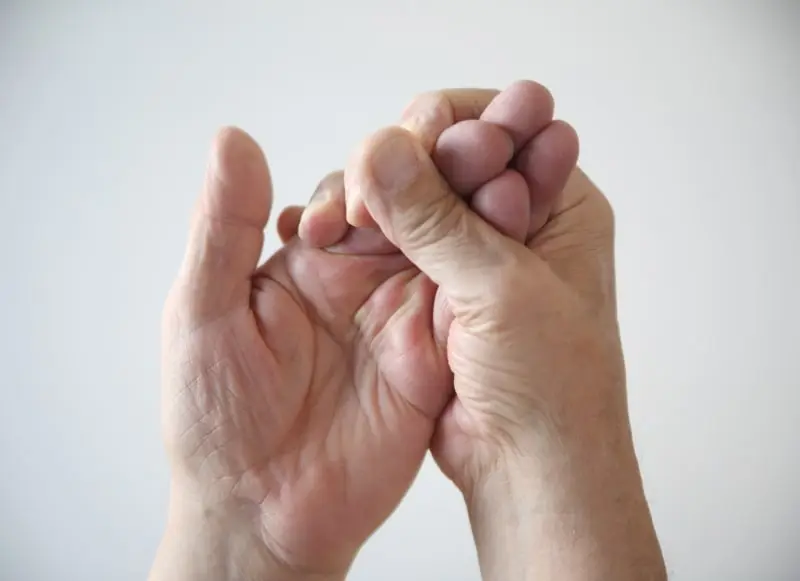
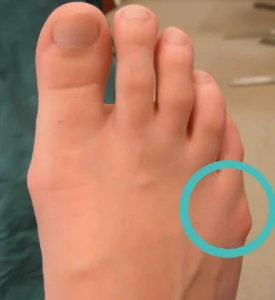
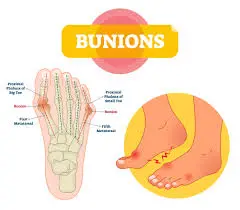
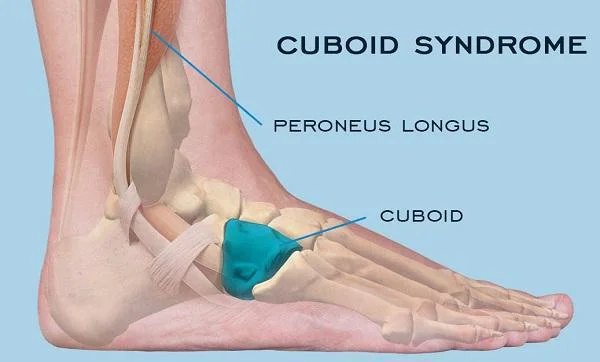

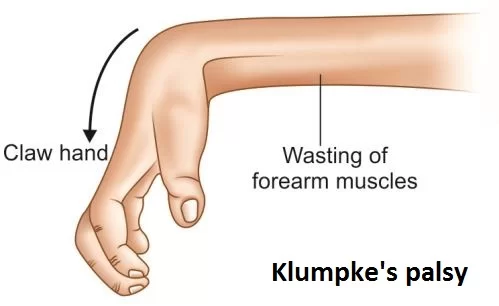
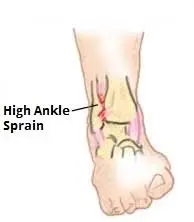
One Comment